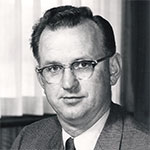|
From Time Magazine, January 19, 1962
Ever since highway patrolmen started using radar to trap speedsters shortly after World War II, U.S. motorists have been searching for ways to beat the electronic rap. With misguided ingenuity, hot-rodders packed hub caps with uranium ore or loaded them with steel balls; they sprayed the fan blades with aluminum paint, dangled static chains from rear bumpers, festooned their radio aerials with strips of aluminum foil. But nothing seemed to foil highway radar, and latter day Barney Oldfields continued to be hauled in like herring in a net, whining "Unfair!"
Then came "Radar Sentry," a device designed to give early warning of radar trips: Resembling a miniature radio, Radar Sentry costs $40, is attached to sun visor or dashboard, and warns of an impending checkpoint by giving out a cheery burble that turns into an insistent squeak once the radar zone has been entered. At high speeds Radar Sentry is almost useless; there just isn't time to slow down before police radar has' tracked the car's telltale blip. But at speeds in the lower 60S, the gadget is a fairly faithful watch bird within 300 ft. of the radar installation. Radar Sentries are being turned out at a clip of 200 to 500 a day by Radatron, Inc. in North Tonawanda, N.Y., and the company claims to have sold 25,000 Sentries in the last six months.
Faced with this transistorized stool pigeon, highway patrols are taking alarm, crying “Foul!” The city of Chicago, the District of Columbia, and the state of Connecticut have banned Radar Sentry. Other states take some comfort from the fact that Radar Sentry is erratic; in informal tests, New York experts found that even diathermy machines and neon lights can trigger its squeal. But if the gadget continues to sell, many states will consider 'banning it. Says New York State Motor Vehicle Commissioner William S. Hults; "It would seem more appropriate to educate the public in the advisability of obeying the speed limits rather than trying to sell them devices which would encourage them, to disobey them." Retorts Radatron's General Manager William Waytena piously; "In many cities, radio stations broadcast where and when the police are using radar. Our device merely supplements this information and alerts the driver to be careful." |




